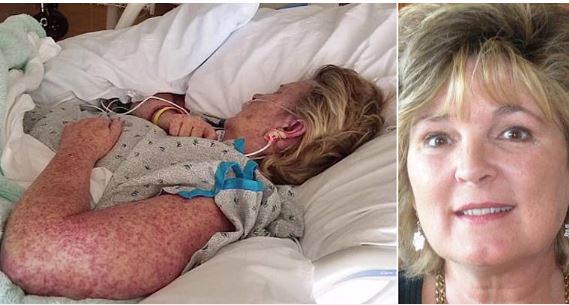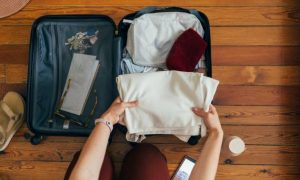Waking up feeling well rested after a perfect night’s sleep, ironically, is something that most people can only dream about. Juggling work, a social life and cramming in everything on your Netflix watchlist can make getting enough sleep seem impossible.
Read More : Top 3 most popular funds on Money over the last day.
One in three adults didn’t get enough sleep on a regular basis, according to a 2016 report from the Centers for Disease Control and Prevention. The answer to conquer those embarrassing yawns during work meetings, or falling asleep in the middle of an episode, could be as simple as setting “an appropriate bedtime,” according to sleep expert Aaron Fuhrman.
Fuhrman told Newsweek that his secret to getting enough sleep is going to bed nine hours before you intend to wake up.
“To determine the right bedtime, it’s helpful to consider your desired wake up time and work backward,” he explained. “On average, most adults find it beneficial to go to bed around seven to nine hours before their intended wake up time. This allows for a sufficient sleep duration, while accounting for the time it typically takes to fall asleep.”
So, following Fuhrman’s advice, if your alarm is due to go off at 6 a.m., you should aim to get yourself to bed at around 9 p.m. to allow for the maximum time it can take to drift off to sleep.
A 7 a.m. wake-up calls for a 10 p.m. bedtime routine, or someone waking up at 8 in the morning should aim to get to sleep for 11 p.m.
Maintain a Consistent Sleep Schedule’
Read More : 2 Bargain Stocks You Can Buy Today and Hold Forever
Fuhrman, a sleep apnea specialist, suggests that someone who works from 9 to 5 during the day should hit the hay around between 9 and 10 p.m., as a “practical approach” to achieving the full eight hours of sleep per night.
This follows a study published in 2021 that analyzed how a person’s sleep health could impact their risk of cardiovascular problems. The research looked at the sleep times of over 100,000 U.K. participants across seven days.
The research found that the group who went to bed between 10 and 11 p.m. each night presented the lowest risk cardiovascular disease. This has led some to regard this as evidence that 10 p.m. is the optimal time to get to sleep.
However, Fuhrman noted that the ideal bedtime varies for every individual and no one time will work for everybody. But, once someone figures out what time works best for them, they should stick with it even when they don’t necessarily have to wake up early.
He continued: “Going to bed and waking up at consistent times, even on weekends, helps regulate your body’s internal clock. So, try to maintain a consistent sleep schedule to optimize your sleep quality.
“Practicing good sleep hygiene can also help you get to sleep on time and have a more restful night’s sleep.
“Establish a bedtime routine by engaging in relaxing activities before bed, which can signal to your body that it’s time to wind down. Incorporate activities such as reading, taking a warm bath, or practicing relaxation techniques like meditation.”
Read More : 5 Tips for Coping With Getting Laid Off, According to Therapists
‘Create a Sleep-Friendly Environment’
Sleep latency, which is the measurement of how long it takes for a person to fall asleep, is between 15 and 20 minutes for most people. Taking much longer to fall asleep on a regular basis can be a sign that the sleep environment isn’t conducive or the bedtime routine isn’t working.
Fuhrman encouraged people to “create a sleep-friendly environment” which can be dark, cool and tranquil. This will help to fall asleep swiftly once your head hits the pillow, rather than being stimulated and kept awake by your surroundings.
While getting to bed at a reasonable time for those precious eight hours might solve part of the problem, it won’t help you get more sleep if the light from your phone is glaring at you in the darkness.
“The blue light emitted by electronic devices can suppress the sleep-inducing hormone, melatonin. Try to avoid using devices such as smartphones, tablets or laptops in the hour leading up to bedtime.”
If that last tip isn’t possible, Fuhrman suggested using the cell phone on night mode, or even trying blue light filters to reduce its impact.
Reverse the Shame Around Bedtimes
Read More : COVID Map Shows States Where Positive Cases Are Rising
Many adults might disapprove of the idea that they need a bedtime as it seems so juvenile, but Nancy Rothstein, sleep expert at Sleepwave, is making it her mission to destigmatize the notion. Sleepwave is a sleep tracking app and sonar alarm that enables people to wake up calmly—rather than being jolted awake by noise.
Rothstein wants to “reverse the shame and pressure around bedtimes” by encouraging people to tailor their sleep to their specific lifestyle.
She told Newsweek: “A good night’s sleep is critical for a positive, productive day, so I understand why many of us are looking for the secrets to sleep. Hard and fast rules, or setting a mandatory eight hours, can do more harm than good. They can make people feel as though they’re failing or falling behind.
“Sleep, or lack thereof, permeates through every aspect of our lives. A good night’s sleep has important benefits—from heart, brain, metabolic health and hormone production. Good sleep quality can also help reduce accidents and injuries caused by fatigue.
“It’s clear that how we sleep affects how we show up in the world. Building better sleep habits should be taken as seriously as maintaining a good diet and getting enough exercise.”
‘Prime Yourself for Sleep’
When it comes to improving sleep quality, it’s not just an earlier bedtime or a calming environment that can make a difference. Rothstein suggests cutting back on caffeine intake, eating earlier in the evening and falling asleep to soothing sounds can have a pivotal impact.
Read More : 2 Bargain Stocks You Can Buy Today and Hold Forever
She continued: “Is your coffee consumption sabotaging your sleep? Most of us should cut caffeine out from 2 p.m. And while a good workout can help your sleep, high intensity exercise too late in the evening can make it more difficult to drift off.
“Eating a heavy meal too close to bedtime is confusing to your body because digestive processes contradict biological night-time processes. Eat dinner at least two to three hours before bed, and try a sleep-friendly drink, like hot milk or chamomile tea to prime yourself for sleep.”

































